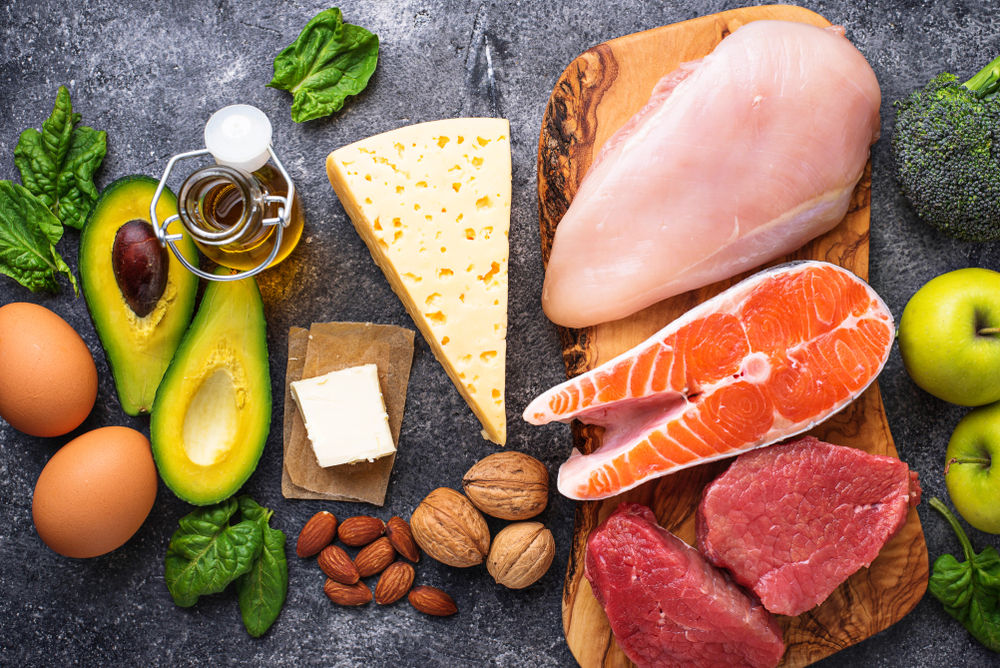The Food-Hormone Connection: How the Food We Eat Can Make or Break Hormone Balance

Hormones are involved in every major physiological process in our body, including metabolism. We require them in very specific amounts for our body to function effectively. The food we eat can either positively influence hormone health or contribute to inflammation. Each macronutrient (carbohydrate, protein, and fat) plays a critical role in how our body produces and utilizes hormones. A healthy hormone balance largely depends on stable blood sugars, a metabolically-efficient liver, and a healthy gut. The problem is that hormones can be easily thrown off balance from stress, lack of sleep, thyroid complications, and poor nutrition, leading to fatigue and mood swings.
With the uncertainty going on in the world right now, it’s not uncommon for us to experience extended periods of stress and anxiety. We may also feel an internal sense of added pressure due to the lack of separation between our work and home life. Chronic stress is a significant contributor to hormone imbalance and results from elevated levels of the ‘stress hormone,’ cortisol, which can cause us to feel moody, fatigued, and irritable. Fortunately, research shows that we can optimize and potentially restore our hormone balance through a consistent healthy eating routine. Quality foods provide our body the nutrients it needs to maintain a healthy liver and gut and keep blood sugars stable.
Our metabolic rate (the rate at which our body burns calories) is largely impacted by the foods we choose to fuel our body with. Both our liver and gut contain key hormones that rely on various nutrients to function effectively to ensure we burn calories efficiently. Maintaining a healthy hormone balance is essential for controlling appetite, weight, and mood. While each person’s body reacts differently, we can take a proactive approach to optimize hormone balance by incorporating the following healthy foods on a regular basis.
High-Fiber Foods
Daily dietary fiber consumption (35 to 50g) is essential for stabilizing blood sugar and balancing the ‘blood sugar hormone,’ insulin. Fiber-rich foods like broccoli, brussels sprouts, and bok choy can improve gut health and promote efficient hormone production. Additionally, sweet potatoes are rich in vitamin B6, which helps cleanse the liver of toxins to boost metabolic efficiency. Healthy complex carbs rich in dietary fiber also increase the production of serotonin, our ‘feel good’ hormone, which can help to minimize stress.

Quality Proteins
Protein provides essential amino acids that your body can’t make on its own. These amino acids are the building blocks for muscle building and hormone production. The hormones that control appetite and food intake—including the ‘hunger hormone,’ ghrelin—are largely influenced by protein. Therefore, the first meal of the day should incorporate a quality source of protein to boost the production of hormones that contribute to feelings of fullness. Studies have shown that incorporating a lean protein meal at the start of the day can boost metabolism and fat burning capability. For vegetarians, quality sources of protein include organic beans and legumes, along with plant-based protein powders, specifically the easily digestible hemp protein.
Protein sources that optimize hormone balance:
- Wild-caught Alaskan salmon
- Pastured eggs
- Lean, organic poultry
- Grass-fed beef
- Cod
- Snapper
- Legumes

Not all proteins positively influence hormone production. Below are a number of processed proteins known to contribute to inflammation and hormone imbalance within the body.
Protein sources that contribute to hormone imbalance:
- Grain-fed beef
- Processed meats that contain nitrites and nitrates
- Dairy for those who may be intolerant
- Mercury-toxic fish
Healthy Fats
According to the World Health Organization, quality fats should come from both monounsaturated and polyunsaturated sources, including nuts, seeds, olive oil, avocados, and legumes. Not only does quality fat consumption reduce insulin resistance, but it also reduces cravings for sugary foods. Specifically, monounsaturated fats trigger the release of hormones that allow us to feel satisfied. The WHO has also noted that we should be incorporating fatty fish, such as wild-caught salmon, at least twice per week. Salmon contains omega-3 fatty acids (EPA and DHA) that not only have a strong anti-inflammatory effect but are essential for hormonal health, including the reduction of cortisol. Fatty fish ensures efficient cell-to-cell and hormonal communication within the body. Aside from fish, avocados are a rich source of healthy fats. They are loaded with beta-sitosterol, which can positively affect blood cholesterol levels and balance cortisol levels.
Aside from incorporating high-fiber foods, lean proteins, and healthy fats, it’s essential to minimize consumption of refined sugars and processed carbohydrates, which are known to create hormone imbalance and drive insulin resistance. Maintaining a healthy hormone balance through a quality diet will allow us to cope with additional stress, decrease inflammation, support a healthy mood, and make it easier to maintain or achieve our goal weight.

